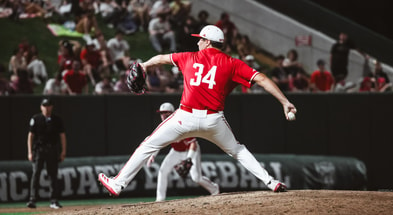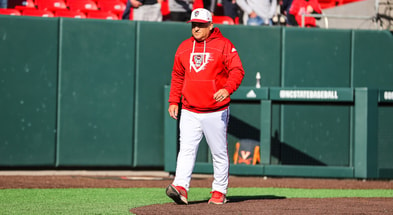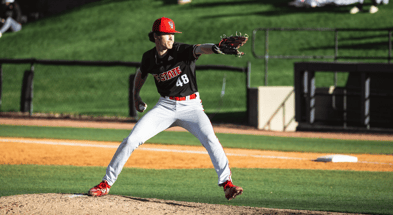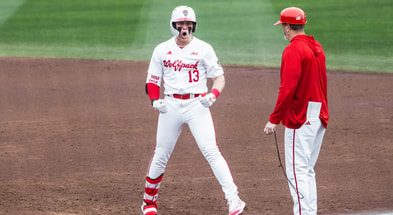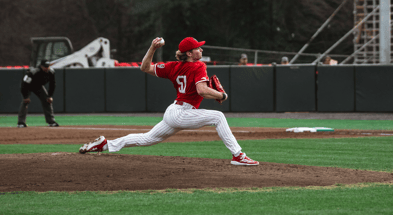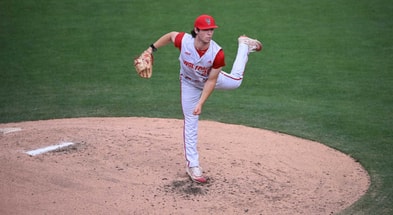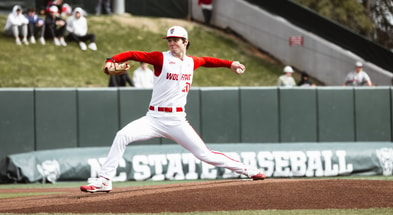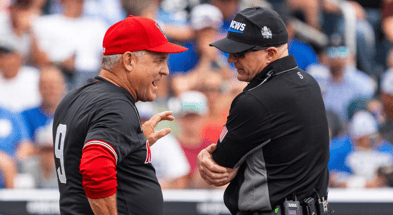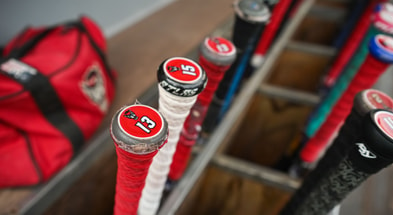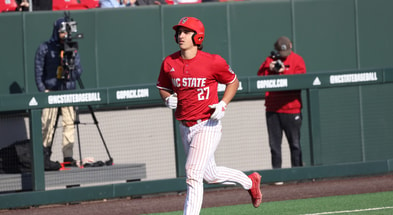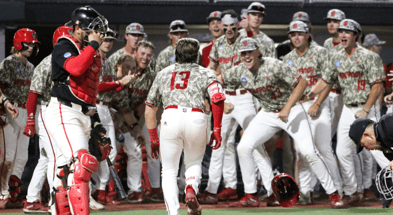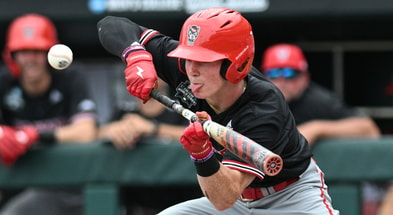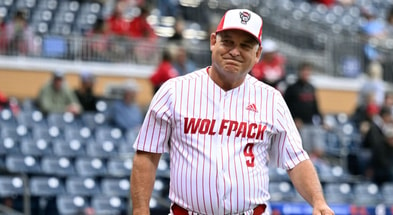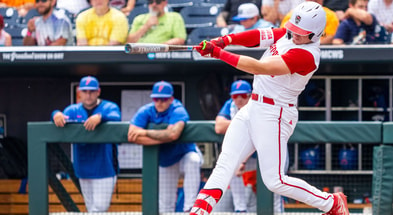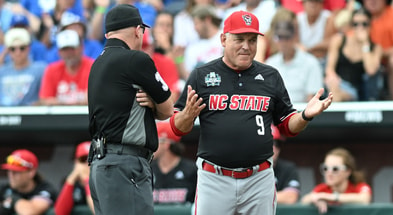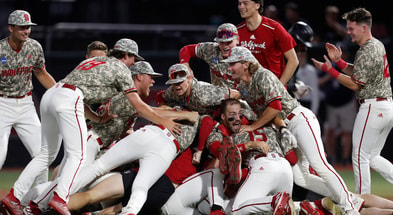Tim Peeler: Tommy Smith fulfilled dreams with NC State baseball

Tommy Smith fulfilled his lifelong dream. Sure, he pitched one of the most important games in the history of NC State baseball and was a reliable hurler for Wolfpack coach Sammy Esposito from 1967-69.
He made his money, however, in the batter’s box.
“I got my dream job,” Smith said in a 2018 interview. “I got to hit.”
He did so in the wooden-bat Cape Cod League in Massachusetts. He did it for NC State, becoming the team’s leading hitter as a senior outfielder after three years on the mound. And he did it for both the Cleveland Guardians, then the Indians, from 1973-76 and for the expansion Seattle Mariners in 1977 in the major leagues.
And for many years, the native of Albemarle, North Carolina, taught both hitting and pitching to aspiring young players at Diamond Stars Baseball, the training academy he helped found in 1985, right up until his death, Nov. 1, at his home in Wake Forest. He was 76.
Smith was a little-used sophomore during NC State’s 1968 College World Series season, having made only two starts all season before the Wolfpack headed to Omaha, mainly because of a strong rotation that featured senior Alex Cheek and freshmen Mike Caldwell and Joe Frye.
That trio started 31 of the Wolfpack’s 34 games en route to both the ACC and NCAA District III championships. They started the first three games at Omaha’s Rosenblatt Stadium, in which the Wolfpack beat Southern Illinois and Texas and lost a controversial decision to second-ranked St. John’s, in which a Johnnies’ baserunner swung so far out of the baseline rounding third on the game’s deciding run that he nearly tripped on the dugout steps.
When it came down to the most important game of the season, when the underdog Wolfpack faced top-ranked Southern California, Esposito couldn’t ask his exhausted staff to start another game. So he turned to Smith, who had amassed only 15 1/3 innings up to that point.
“Our starters were gassed,” Smith said 50 years after that fateful game. “They had thrown a lot of innings, especially down the stretch of the ACC regular season and the two District games against fourth-ranked Florida State. I knew someone had to start the Southern Cal game, and Sam said it was going to be me.
“It was easily the biggest start of my college career. Sam just said, ‘Go give it what you can and see what happens. We just might be able to beat these guys.’”
At Omaha’s original Rosenblatt Stadium, Cheek beat No. 3 Southern Illinois and No. 2 Texas (with a save by Caldwell), sandwiched between Caldwell’s 3-2 loss to St. John’s. Then it was up to Smith in the Wolfpack’s elimination game against eventual national champions Southern California.
“With our regular starters having all pitched a lot in the first three games, we had no place to turn to except to sophomore Tommy,” Esposito said back in 1968. “He was asked to do a job in the toughest situation you could put a young pitcher into, and he did everything we could have asked for.
“We hit the ball as solidly as we have in any other game, but we couldn’t get it through when we needed it.”
Smith pitched out of a bases-loaded jam in the second inning without allowing a run and gave up unearned runs in the fourth and fifth innings. That shouldn’t have been a problem for a Wolfpack offense that scored nearly seven runs a game despite hitting just 12 home runs all year, but the Southern Cal defense was the best in the nation.
In the sixth inning with center fielder Steve Martin on first, Clem Huffman hit a line drive between center and right field, but a diving catch prevented what could well have been a triple or inside-the-park home run.
In the seventh inning, the Wolfpack put together three consecutive singles to load the bases, but Southern Cal pitcher Bob Vaughn forced a double play and Martin was tagged out at home on a grounder to third base.
Top 10
- 1Breaking
Nico Iamaleava
Tennessee & QB under contract negotiations
- 2New
Arch Manning
Texas QB explains staying
- 3
Mark Pope
Receives raise, extension
- 4Hot
QB Mock Draft
Predicting landing spots for Top 12
- 5
Pat McAfee
Host talks Mary Kate Cornett lawsuit
Get the On3 Top 10 to your inbox every morning
By clicking "Subscribe to Newsletter", I agree to On3's Privacy Notice, Terms, and use of my personal information described therein.
Frye took over for Smith in the eighth inning, but the Wolfpack, for the first time all season long, could not put a run on the scoreboard in the 2-0 loss.
“We came so darn close,” Smith said when the 1968 team held a 50th anniversary celebration in 2018. “We showed we could compete with anybody.”
Smith returned as a starting pitcher for his junior season in 1969, going 4-4 with a 3.39 earned run average. Truth be told, though, Smith wanted to be a hitter. He thought he might have a chance to play professional baseball if he was an everyday player.
“I had always wanted to hit,” Smith said. “That was my passion, to be a hitter. Coming out of high school and here to NC State, I was expected to pitch. With Coach Esposito, if you were a pitcher, you were a pitcher. If you are a hitter, you were a hitter. I was a pitcher most of the 1968 season and most of my junior season.
“Deep down inside, though, I wanted to hit.”
He talked to Esposito after the 1969 season, found a team in the Cape Cod League that agreed to let him play outfield and came back as an All-ACC outfielder his senior year.
Smith had a team-leading .379 batting average, with five home runs, six doubles and three triples as a senior. That was enough for the Cleveland Guardians, Smith’s favorite childhood team, to take him in the fifth round of the 1970 draft of amateur players.
After three years in the minors, Smith spent four seasons with the Guardians, usually as a reserve outfielder, before he was taken in the November 1976 expansion draft by Seattle Mariners for the 1977 season. He played the inaugural year in Seattle, then retired from baseball after 121 career games as an outfielder, in which he hit five home runs, drove in 21, had a .232 batting average and stole nine bases. He never pitched in the major leagues.
After baseball, he became a salesman for several electrical supply companies and Redi-Mix Concrete, while also giving private hitting and pitching instructions at Diamond Stars.
Following a reception of friends and family on Thursday, Nov. 8, Smith was entombed at Raleigh Memorial Park on Friday.
Memorial contributions in Smith’s memory to The Miracle League of the Triangle (www.mltriangle.com), in honor of Smith’s love for community and youth sports.
Tim Peeler is a regular contributor to The Wolfpacker and can be reached at [email protected].

